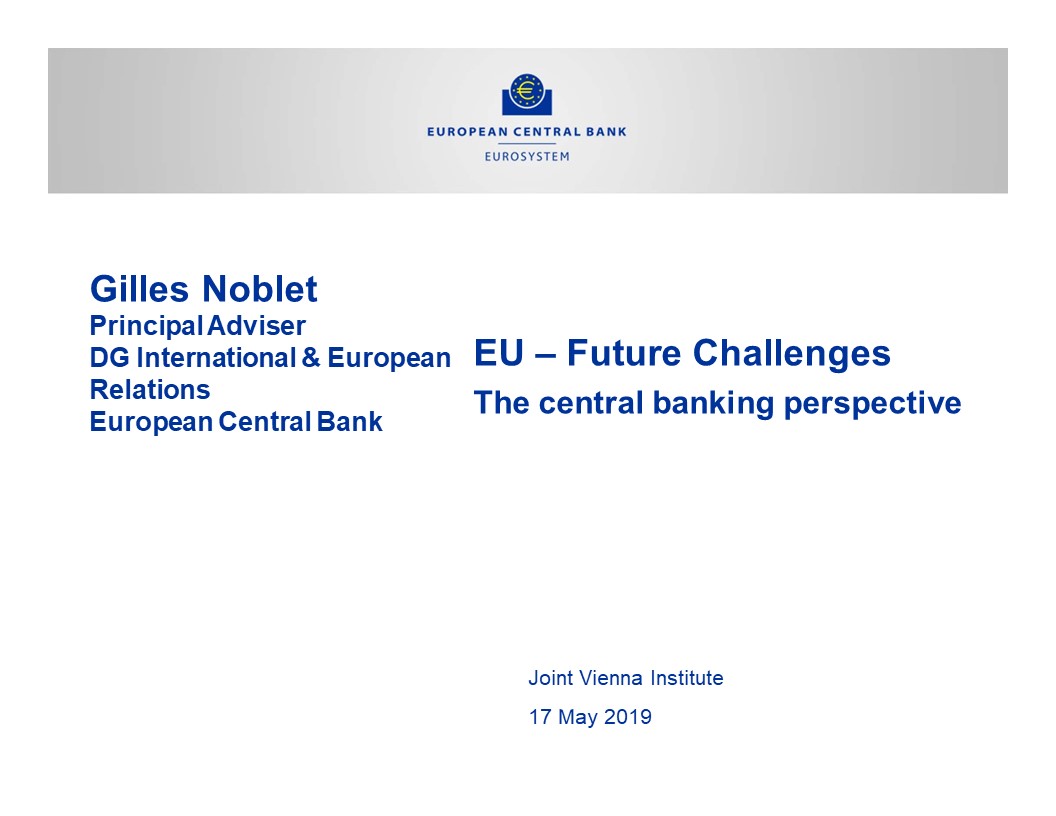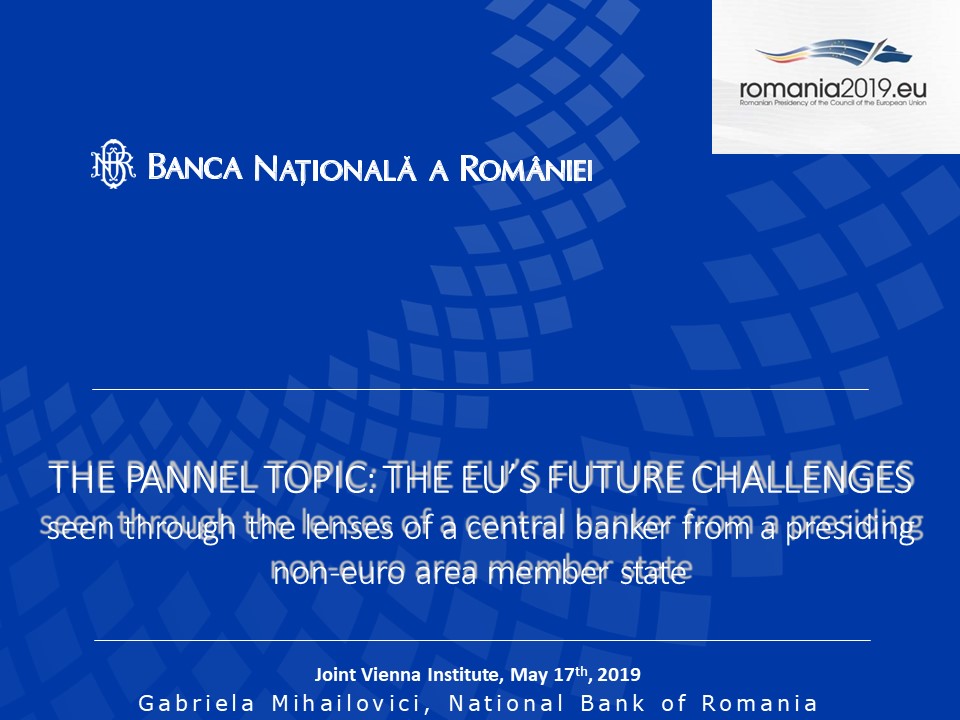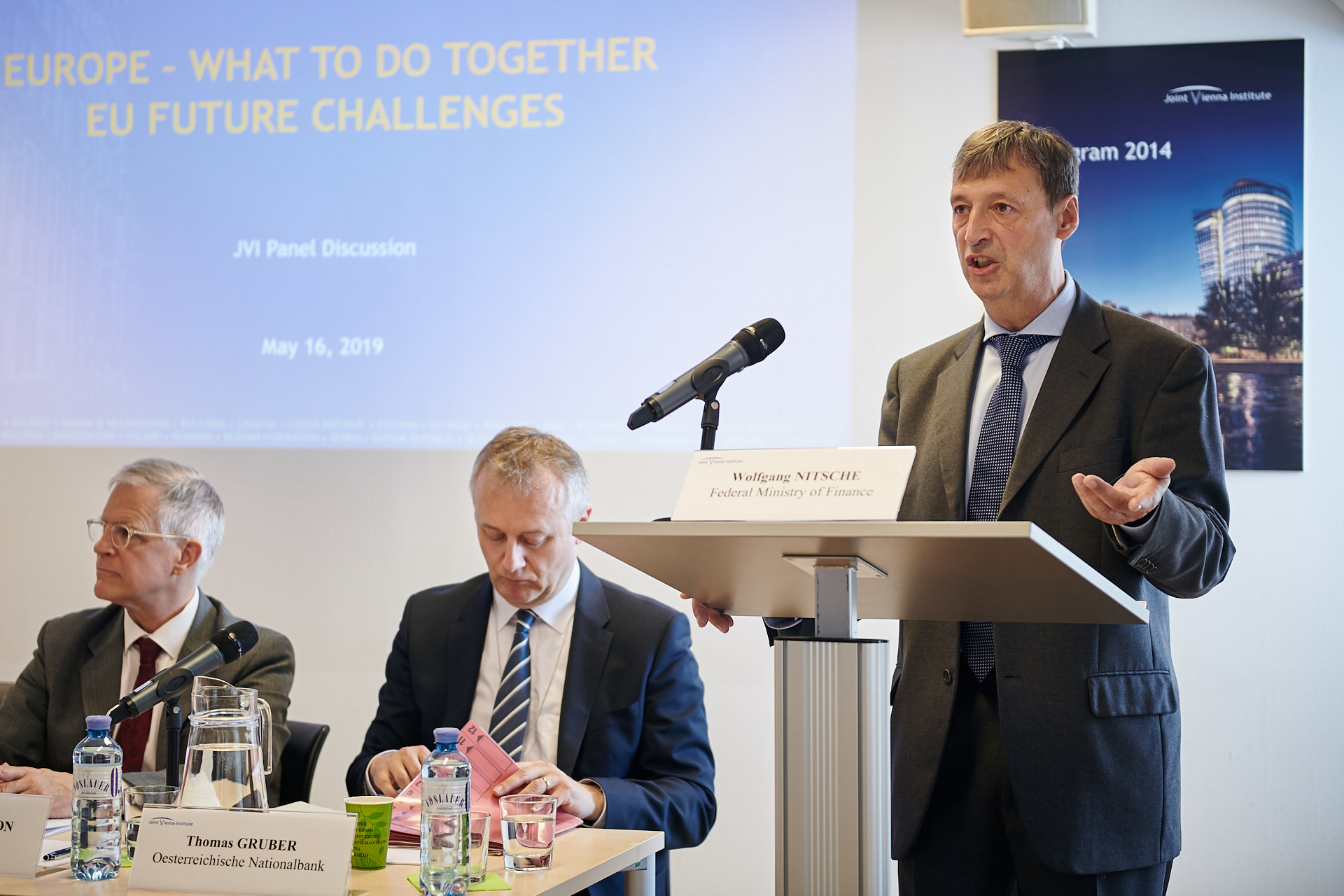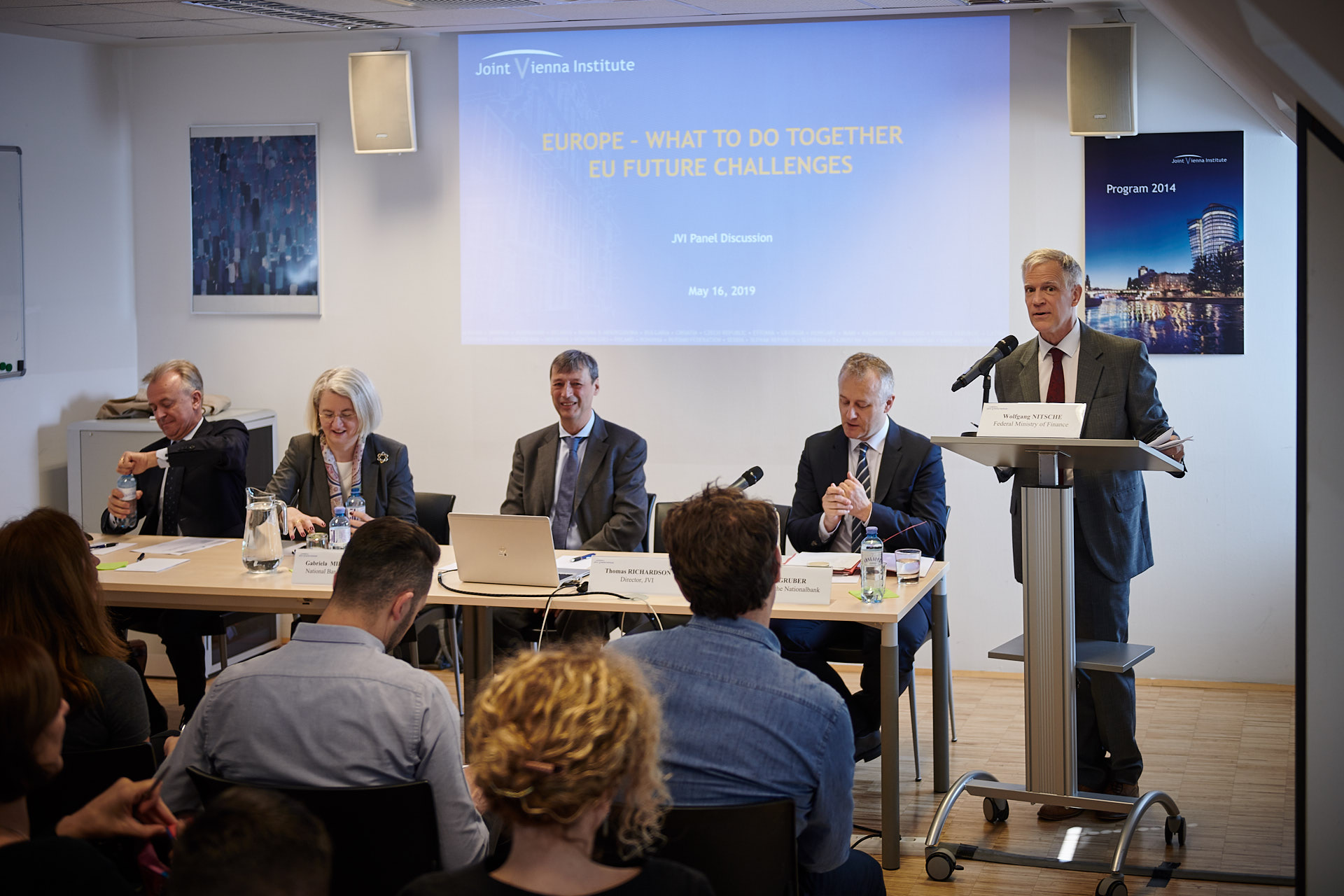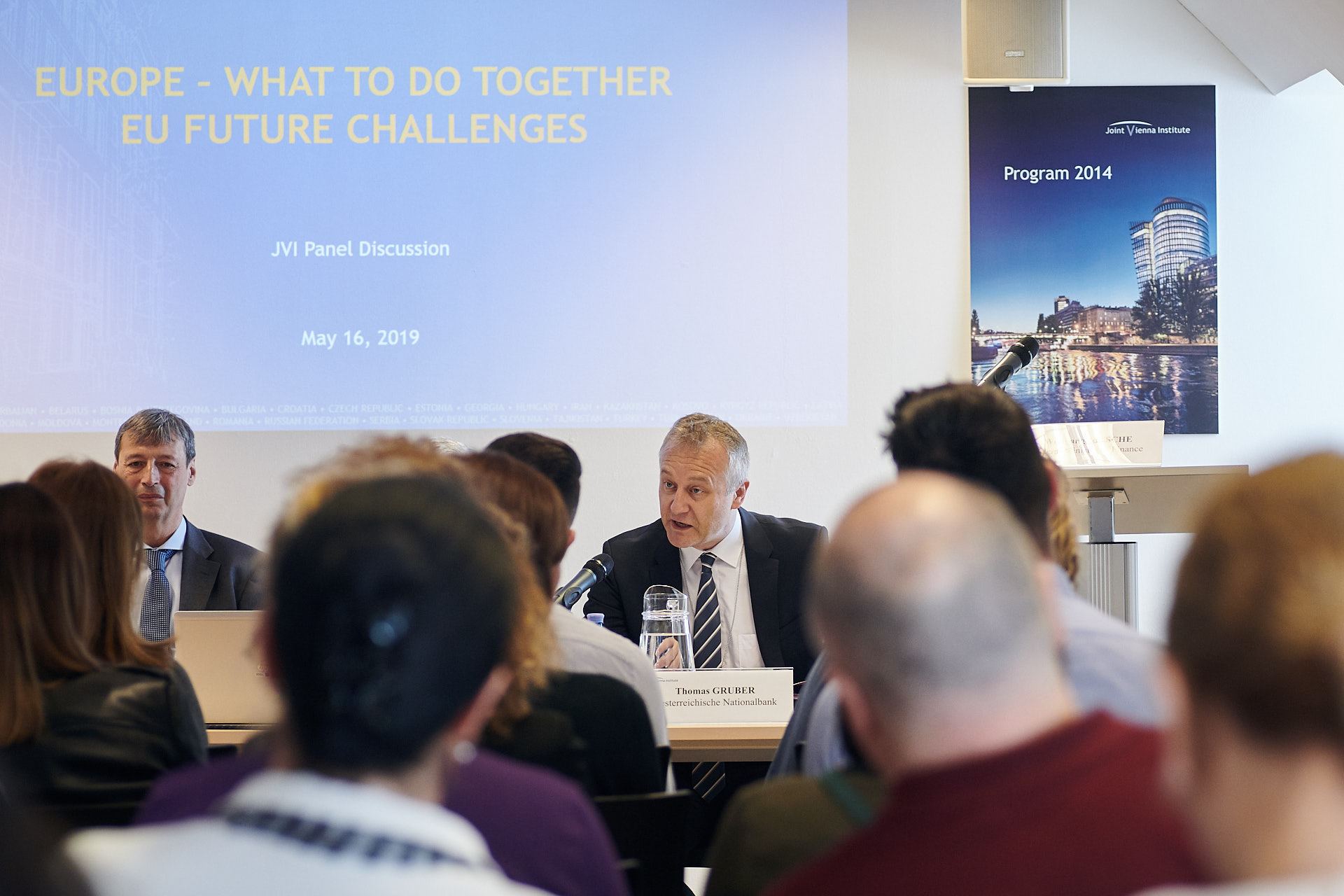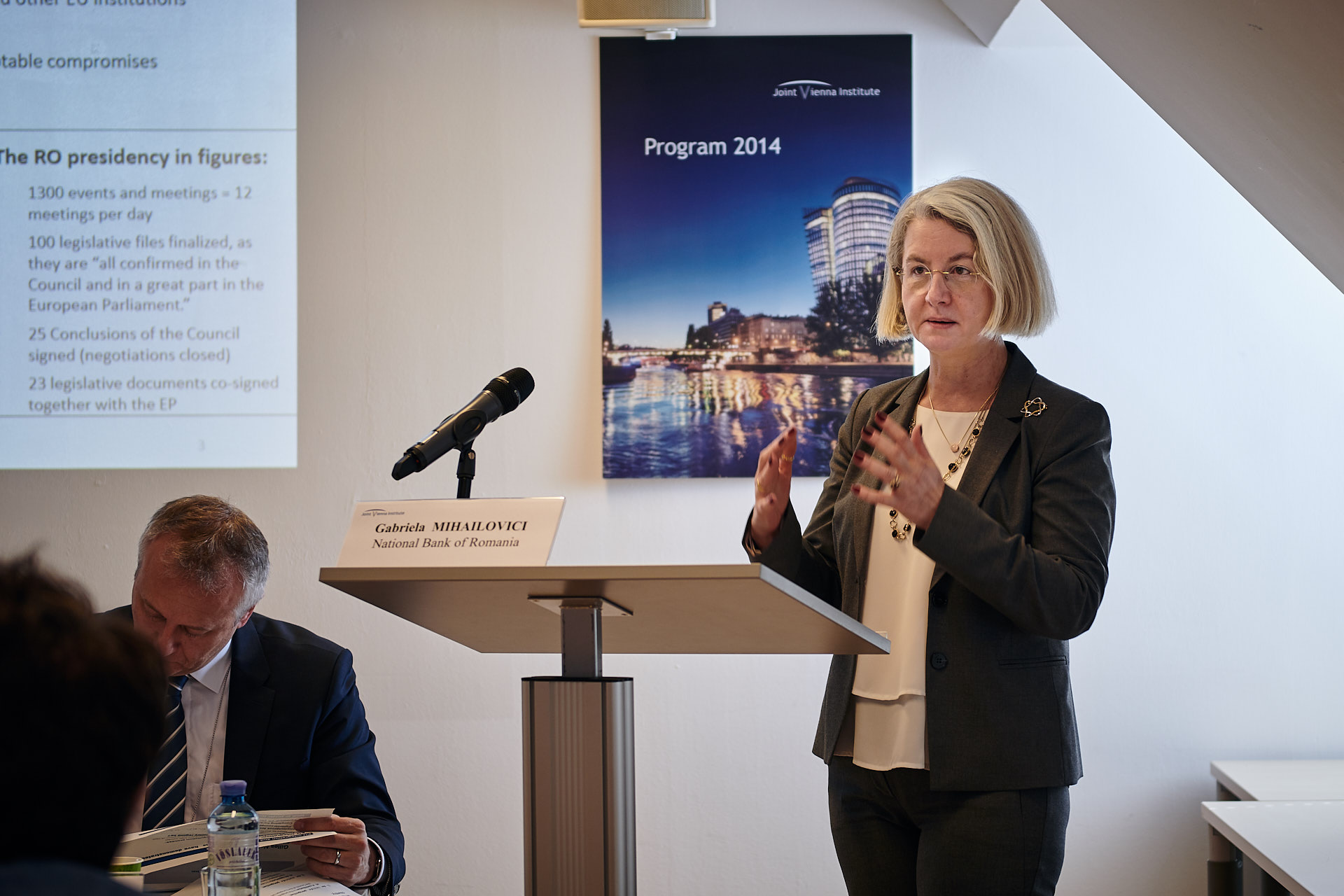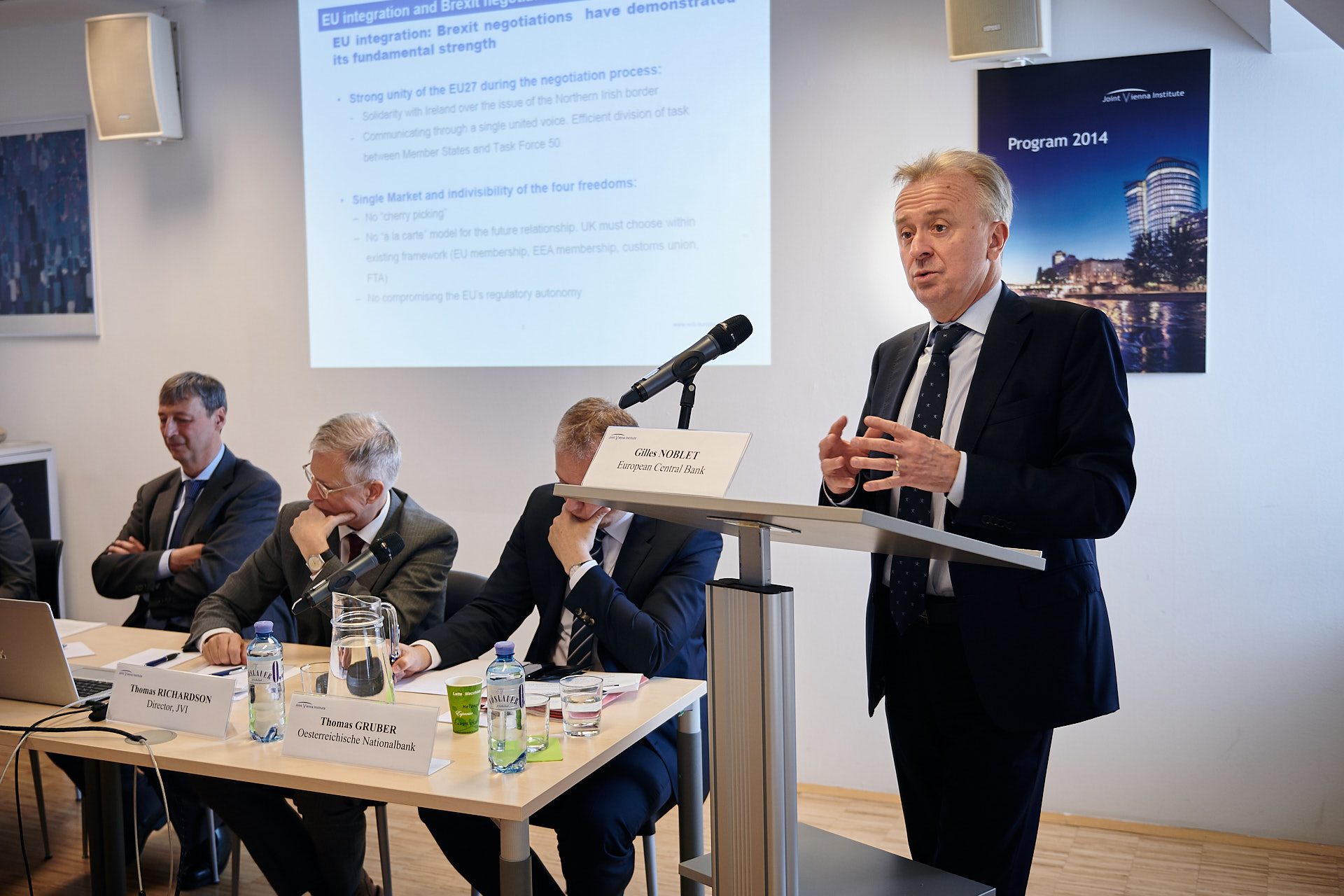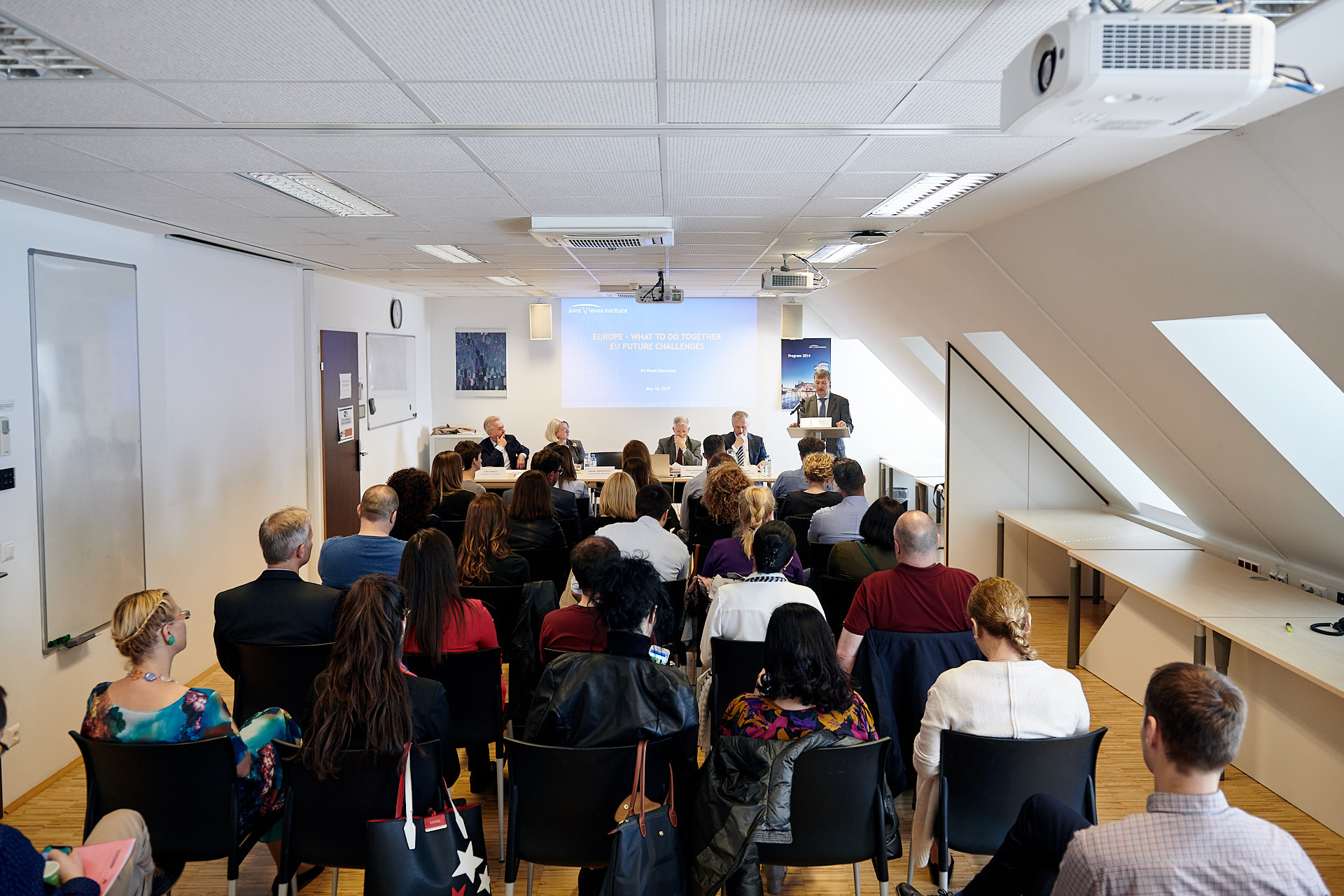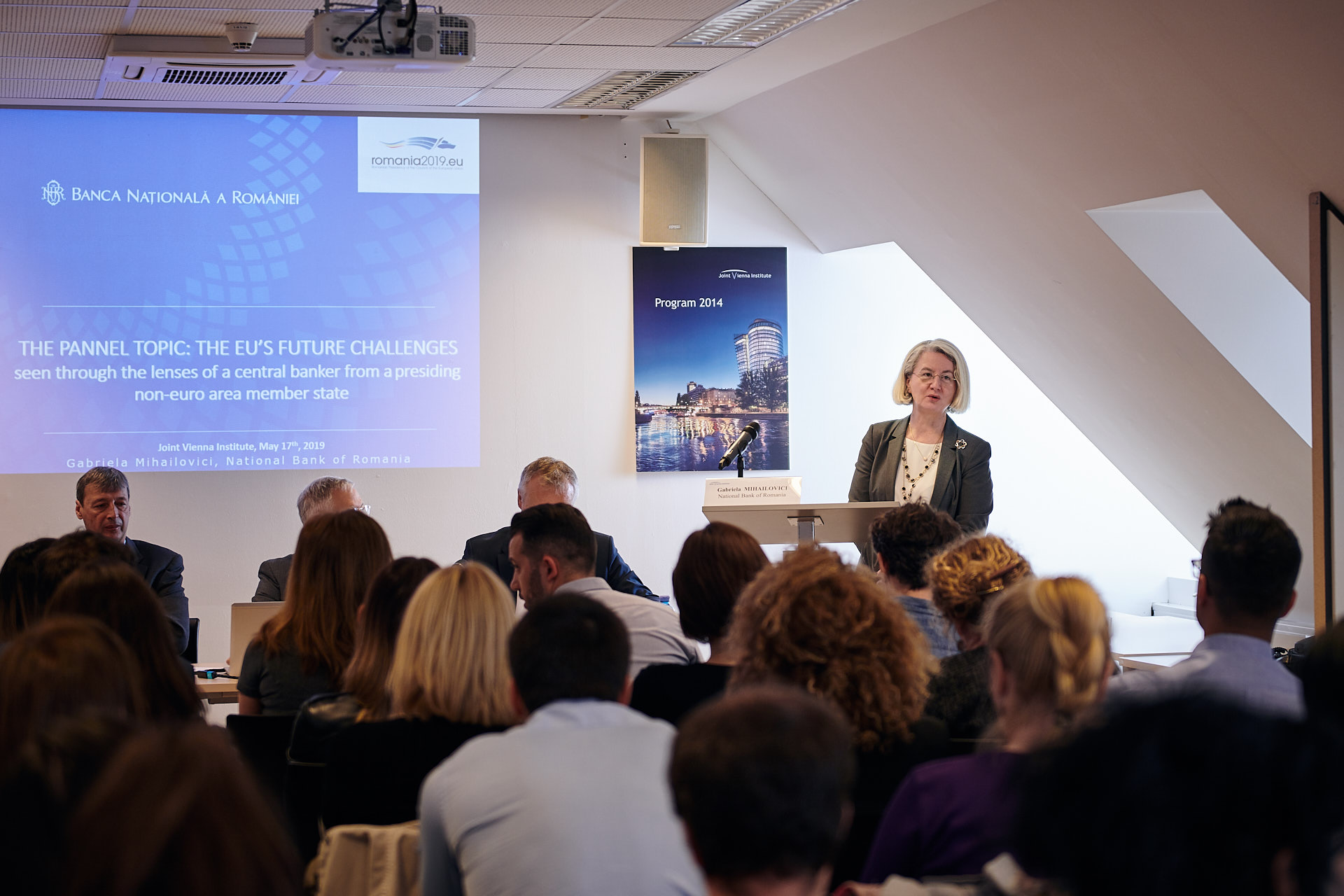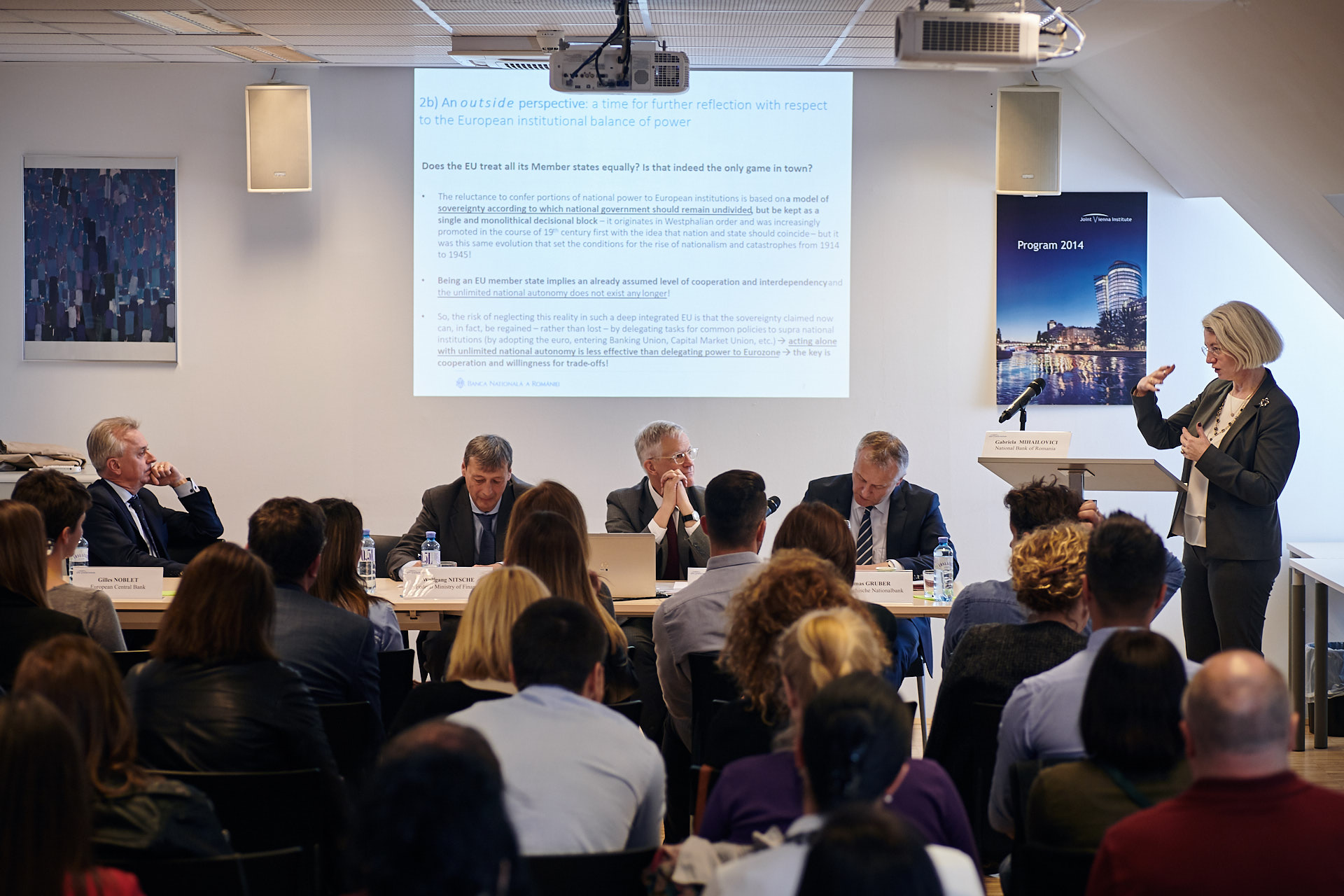Summary
What are the current and future challenges the European Union will face? How do we tackle global warming and migration flows together? How do we react to the severe strain the global governance system has to deal with? On May 17, 2019, a panel chaired by Mr. Thomas Gruber, Austrian Central Bank, brought together Mr. Wolfgang Nitsche, Austrian Federal Ministry of Finance, Mr. Gilles Noblet, European Central Bank, and Ms. Gabriela Mihailovici, National Bank of Romania, to discuss challenges currently confronting the EU and what might be expected by 2030.
Mr. Nitsche set the scene by discussing the EU and the challenges it is and will be facing. The EU, which brought countries together after Soviet socialism ended, is the most successful integration project in history. Today the challenges it faces are both external and internal. While dealing with global warming and migration flows is more urgent than ever, it also must deal with the severe strain that the U.S. and China are causing global governance.
Global challenges need a global solution. It is crucial for European countries to speak with one voice through the EU. To highlight how much power the EU has, Mr. Nitsche pointed out that if it had a single seat in the IMF, it would be the largest member. If it is to act coherently, much deeper integration is needed, which will require compromises between member states.
To counterbalance the Chinese efforts to gain more power, the EU should further intensify its ties with countries in its south eastern and eastern neighbourhood and in Central Asia and restore its relationship with Russia. It is also important for the EU to do more to tackle climate change by increasing investment in renewable energy and public transport.
The EU also faces internal challenges: Rising income inequality, producing more and more net losers of integration, an aging population and the waning consensus for integration are most pertinent.
There are two major movements in the EU: One group of countries thinks that Europe needs to proceed with deepening integration, others strongly disagree. This is in particularly true with regard to European and Monetary Union: Many hold the view that enough has already been done to secure its long run stability, if agreed rules are properly implemented. The other thinks that what has been done is still not enough to overcome existing asymmetries, so that further integration is required.
There are several ways to break up the blockage between the two groups: (1) The EU needs to revive the peace narrative. Thanks to the EU, Europe is now the most attractive and secure place in the world to live. (2) The EU also needs a welfare narrative. Tackling the huge gaps between different groups should be a high priority. (3) Heightening trust and respect between member states is crucial to reduce uncertainty about how different states will behave in future. (4) It must be recognized that deeper integration will leave some countries worse off, and they must be compensated. It is vital that the compensation scheme is formulated in the political sphere based on mutual agreement.
Mr. Noblet gave a central bank perspective on coming EU challenges. The Brexit negotiations demonstrated the central strength of the EU: During the negotiations the EU has spoken with one voice, demonstrating strong unity. The EU has also shown total solidarity with Ireland over the issue of the Northern Ireland border.
In the process the EU highlighted the indivisibility of the four freedoms and the single market. The UK cannot simply choose the relationship with the EU that it wants; it has to choose within the existing framework. Brexit requires a push for closer financial integration, and the supervisory and regulatory framework must be upgraded. And completion of the banking union needs to remain a priority.
Since the Brexit referendum Pro-European sentiment has reached a record high in the EU. While debates in the past have often focused on whether we need the EU, they now focus on what kind of EU we need. This has led to a shift in strategy for Eurosceptics. While previously they questioned the existence of the EU, they now attack individual policies.
Finally, Ms. Mihailovici provided some insight into the EU Council from the point of view of the currently presiding country. From inside, the presidency is mainly a chance to contribute to the progress of Council political and technical policy-making negotiations. The presiding country must take several roles in different meetings. During Romania’s presidency, numerous agreements have been reached, notably the gas market and the capital market union. From an outside perspective, the presidency is an opportunity to cooperate more deeply, coordinate better within Europe, and improve the quality of national institutions.
The discussion that followed raised questions about an EU of two speeds, integration losers, and the recent rise of Eurosceptics across the union. The last question concerned how EU institutions need to evolve to be prepared for the next crisis. Ms. Mihailovici argued that the EU needs a fiscal pillar—even though the Eurozone is better prepared than it used to be, it is still unfinished. Mr. Noblet thinks that while the ECB has many monetary policy tools, there is still a need for more shock absorbers. The banking union could be one, but there should also be a public sector absorber through the fiscal capacity of the EU. Finally, Mr. Nitsche highlighted the positive things that have been done. Much has been learned in the cooperation between the EU and the IMF. The IMF has proven to be extremely valuable and therefore should be kept on board for the medium and longer term. For future regulation of the global financial system, it will be important to include alternative forms of financing, like shadow banking. At all times, mutual respect and close cooperation between all institutions is crucial.
Thomas Mitterling, Consultant, JVI


